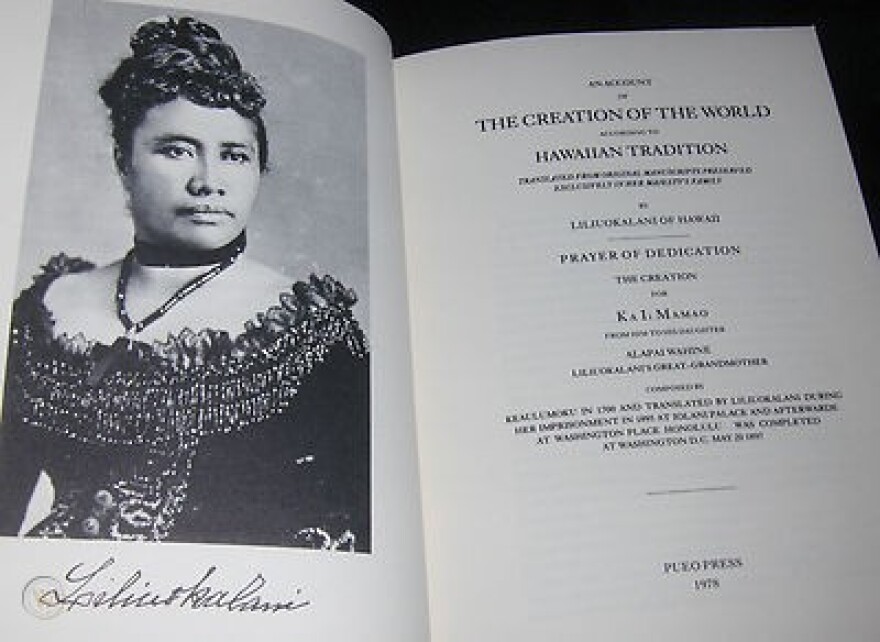According to the latest U.S. census figures, less than 3 percent of Hawai?i’s population is Black. But there is a long history of Black experience in Hawai?i, and that includes early writings by Hawaiian monarchs like King Kal?kaua and Queen Lili?uokalani. UH M?noa English Professor Joyce Pualani Warren examined the literature and shares her findings with HPR.
UH M?noa English Professor Joyce Pualani Warren says local residents tend to think of experiences of blackness on the continent as separate from what's going on in Hawai’i.

“What I think might be interesting for folks in Hawai?i to think about is the ways in which blackness was deployed against Lili?uokalani and Kal?kaua as an attempt to mark them as unfit to rule,” says Warren, “It was an attempt to minimize the legitimacy of the Hawaiian Kingdom.”
Warren has been poring over writings by Hawaiian monarchs like King Kal?kaua and Queen Lili?uokalani, to understand their views of blackness.
“I’m looking at moments where Hawaiian monarchs are racialized specifically as black and how they deal with those moments and how they write about those moments,” says Warren.
One particular story she shared was from the journal of Prince Alexander Liholiho. He's touring the U.S. in the 1850s. He?d just been at the White House where the 16-year-old prince was welcomed as a future head of state. He’s riding a train when the conductor tells him to move to a different car.

“And he refuses right. He?s not going to put up with this. And at this critical moment someone whispers in the conductor?s ear and the conductor backs away and apologizes,” says Warrne, “And Liholiho writes in his journal, ?Just because I had a darker skin, he had taken me for someone?s servant. What a fool.?”
Warren says these experiences during the nineteenth century may have helped shape the views Hawaiian monarchs had of the U.S., underscoring a need to remain sovereign.
She says ali?i reflected on these moments saying ?I see how I’ve been treated in this country how this country treats people with a darker skin. How does this bode for our interactions as nations moving forward?’

Warren, who is part Hawaiian and part Black, is currently working on a book analyzing the Hawaiian concept of p? both as the generative beginning of the universe and as the figurative blackness.
“What I’m very interested in and invested in is looking at understandings of blackness that are rooted in Hawaiian knowledge and Hawaiian worldviews,” says Warren.
She says for kanaka maoli, who are often invested in researching and reclaiming their understandings and worldviews – blackness is a very essential part of that.
“Not just because we are currently in a moment where folks the world over – and rightly so – are grappling with the tenuous history of blackness and these larger projects of settler colonialism,” says Warren, “But I think there’s a value to just understanding what our understandings of constructions of blackness as indigenous people were long before the introduction of settler colonialism and the importation of U.S. ideas about race and racialization into Hawai?i.”
Professor Warren will be sharing more of her research at a virtual talk story this Saturday from 12pm - 1:30pm. To register or for more information visit ThePopoloProject.org




